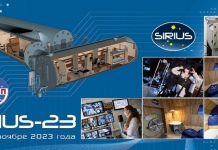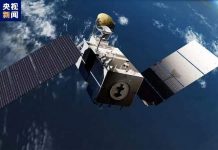The startup is preparing to launch a satellite designed to produce new semiconductors that could be used in electronic devices on Earth.
Space Forge lost its first experimental satellite in January during a failed launch of Virgin Orbit’s LauncherOne rocket. The new satellite, called ForgeStar-1, will head to the US for launch in late 2023 or early 2024.
Space Forge has signed a collaboration agreement with US multinational aerospace giant Northrop Grumman to provide semiconductor wafers created in space, which Northrop Grumman can then further use in its manufacturing projects.

Semiconducting materials are an integral component of many electronic devices, but their production on Earth is expensive and requires large amounts of energy. However, space conditions make it possible to develop new semiconductor materials much more efficiently, said Space Forge CEO and founder Josh Western.
UK startup Space Forge is preparing a satellite for semiconductor production in space
Manufacturing complex semiconductors is a very labor-intensive and slow process; they are grown atom by atom. Gravity has a strong influence on this process, shifting the bonds between these atoms. In space, you can overcome this barrier because there is no gravity
Western added that space is also an attractive environment because of the vacuum, which will be useful in protecting sensitive material from contamination. On Earth, this vacuum is created with the help of industrial machines. The combination of weightlessness and the vacuum of space could allow researchers to create semiconductors that are 10 to 100 times more efficient than those produced on Earth.
The ForgeStar-1 satellite, about the size of a microwave oven, will house a miniature automated chemistry laboratory that will allow the team to remotely mix chemical compounds and develop new semiconducting alloys. However, instead of sending materials back to Earth, ForgeStar-1 will transmit the results of experiments to scientists in digital format, since this satellite is not designed to return to Earth.
The global semiconductor industry is currently valued at more than $500 billion and is expected to double in size by 2030.



